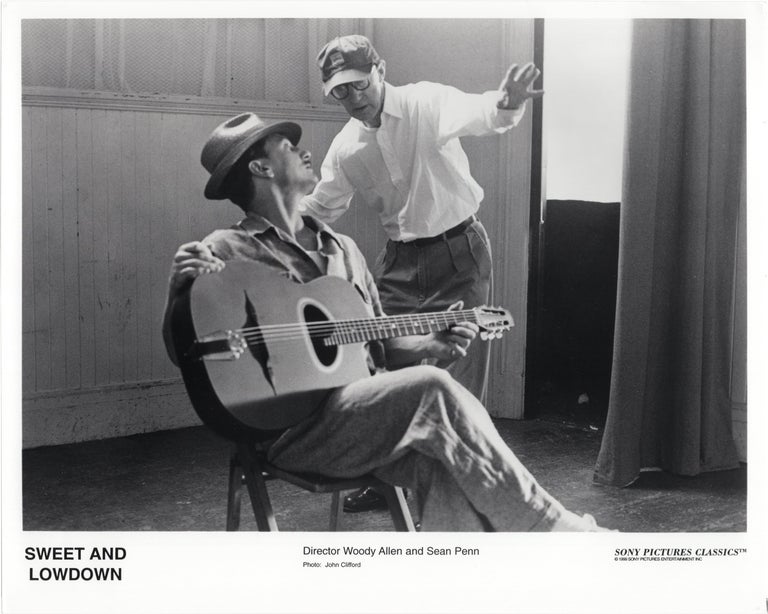Waiting By The Phone: A Modern Tale Of Delayed Gratification

Table of Contents
The Psychology of Waiting by the Phone: Why It's Harder Than Ever
Our brains are wired for instant reward. The dopamine rush we experience with instant messaging, social media updates, and immediate access to information has rewired our expectations of time. This instant gratification contrasts sharply with the slower, more deliberate process of "waiting by the phone"—a process involving anticipation, uncertainty, and a delayed reward system. The contrast highlights a crucial shift in our psychological landscape.
- Increased anxiety and impatience: The immediacy of instant messaging and social media has conditioned us to expect near-instantaneous responses. Waiting, therefore, feels amplified, leading to increased anxiety and impatience.
- The struggle to disconnect from technology: Our constant connectivity makes it difficult to disconnect and simply wait. The urge to check emails, notifications, and social media feeds undermines our ability to embrace the waiting period.
- The impact of social media on our perception of time and expectation: Social media presents a curated reality of constant activity and achievement, further fueling our impatience and altering our perception of what constitutes a "reasonable" waiting period. The seemingly effortless success of others online can exacerbate feelings of frustration and anxiety while waiting for our own delayed gratification.
Waiting by the Phone in a Digital Age: Modern Manifestations
While the literal act of "waiting by the phone" might seem outdated, the underlying principle—the anticipation of delayed gratification—persists in numerous modern contexts. It's not just about waiting for a phone call anymore.
- Email responses: Waiting for crucial emails, whether from potential employers or collaborators, can feel like an eternity. The constant checking of the inbox, the refreshing of the page – these are all modern manifestations of "waiting by the phone."
- Job interview results, college acceptance letters, online order deliveries: The anticipation surrounding major life events and everyday purchases keeps the experience of delayed gratification alive. Each notification check, every refresh, is a testament to our inability to fully disconnect from that waiting period.
- The constant checking of emails and notifications: The pervasive nature of technology keeps us hyper-aware of our waiting periods. Each notification, whether relevant or not, can disrupt our focus and amplify our sense of anticipation.
- The anxiety of the "unread message" notification: The simple red notification dot on our devices is a constant reminder of what we're waiting for, and frequently causes unnecessary anxiety.
- The impact of social media on our perception of waiting: Social media’s portrayal of instant success can make waiting for our own achievements feel even more agonizing.
Cultivating Patience: Strategies for Managing Delayed Gratification
Fortunately, we can learn to manage the challenges of delayed gratification. Strategies for cultivating patience are essential in navigating the modern world.
- Mindfulness and meditation techniques: These practices help us to focus on the present moment, reducing the intensity of anxiety associated with waiting. Mindfulness allows us to acknowledge the feeling of waiting without getting overwhelmed by it.
- Setting realistic expectations and managing anticipation: Understanding that some things take time can reduce unnecessary stress. Setting realistic timelines and managing your expectations can help mitigate the intensity of the wait.
- Engaging in distracting but productive activities while waiting: Focusing on other tasks, such as reading, exercising, or pursuing hobbies, can help shift attention away from the anticipation and allow you to be productive while waiting.
- Utilizing time management techniques to structure waiting periods: Breaking down larger waiting periods into smaller, manageable tasks can make the overall experience feel less overwhelming. Planning activities during the waiting period can transform it from a passive experience into a productive one.
The Unexpected Benefits of Waiting by the Phone: Appreciating the Value of Anticipation
While waiting might seem purely negative, it offers unexpected benefits. The delayed reward system has its advantages.
- Increased appreciation for the eventual outcome: The anticipation can amplify our enjoyment and appreciation of the outcome when it finally arrives.
- Improved patience and self-control: Mastering the art of waiting strengthens our ability to manage our impulses and develop self-control in other areas of life.
- Enhanced ability to manage stress and frustration: The practice of patiently waiting equips us with better coping mechanisms for dealing with delays and setbacks.
- Opportunities for personal growth and self-reflection: Waiting periods can provide valuable time for self-reflection, allowing for personal growth and a deeper understanding of ourselves.
Embracing the Art of Waiting by the Phone
In a world obsessed with instant gratification, the ability to practice delayed gratification is a valuable asset. We've explored the psychological impact of instant access, the modern manifestations of "waiting," and strategies for managing the wait. By cultivating patience and appreciating the value of anticipation, we can transform the experience of waiting from a source of anxiety to an opportunity for growth. Reflect on your own experiences with waiting and actively practice the techniques discussed. Mastering delayed gratification is not merely about waiting; it's about managing the wait, waiting for success, and ultimately, achieving a deeper sense of fulfillment.

Featured Posts
-
 Yevrobachennya 2014 2023 Doli Peremozhtsiv
May 24, 2025
Yevrobachennya 2014 2023 Doli Peremozhtsiv
May 24, 2025 -
 Is Kyle Walker Peters Heading To Leeds Transfer Rumours
May 24, 2025
Is Kyle Walker Peters Heading To Leeds Transfer Rumours
May 24, 2025 -
 Planning Your Memorial Day Trip 2025 Flight Dates To Consider
May 24, 2025
Planning Your Memorial Day Trip 2025 Flight Dates To Consider
May 24, 2025 -
 H Nonline Sk Zrusene Pracovne Miesta V Nemecku Prehlad Najvaecsich Spolocnosti
May 24, 2025
H Nonline Sk Zrusene Pracovne Miesta V Nemecku Prehlad Najvaecsich Spolocnosti
May 24, 2025 -
 The Underappreciated Potential Of News Corps Business Units
May 24, 2025
The Underappreciated Potential Of News Corps Business Units
May 24, 2025
Latest Posts
-
 The Woody Allen Case Sean Penns Perspective On Dylan Farrows Claims
May 24, 2025
The Woody Allen Case Sean Penns Perspective On Dylan Farrows Claims
May 24, 2025 -
 Sean Penns Comments On The Woody Allen Dylan Farrow Case
May 24, 2025
Sean Penns Comments On The Woody Allen Dylan Farrow Case
May 24, 2025 -
 The Woody Allen Dylan Farrow Case Sean Penns Perspective On The Allegations
May 24, 2025
The Woody Allen Dylan Farrow Case Sean Penns Perspective On The Allegations
May 24, 2025 -
 Hollywood Star Sean Penn Makes Bombshell Claims Leaving Fans Horrified
May 24, 2025
Hollywood Star Sean Penn Makes Bombshell Claims Leaving Fans Horrified
May 24, 2025 -
 Woody Allen Sean Penns Support Amidst Resurfaced Sexual Abuse Allegations
May 24, 2025
Woody Allen Sean Penns Support Amidst Resurfaced Sexual Abuse Allegations
May 24, 2025
